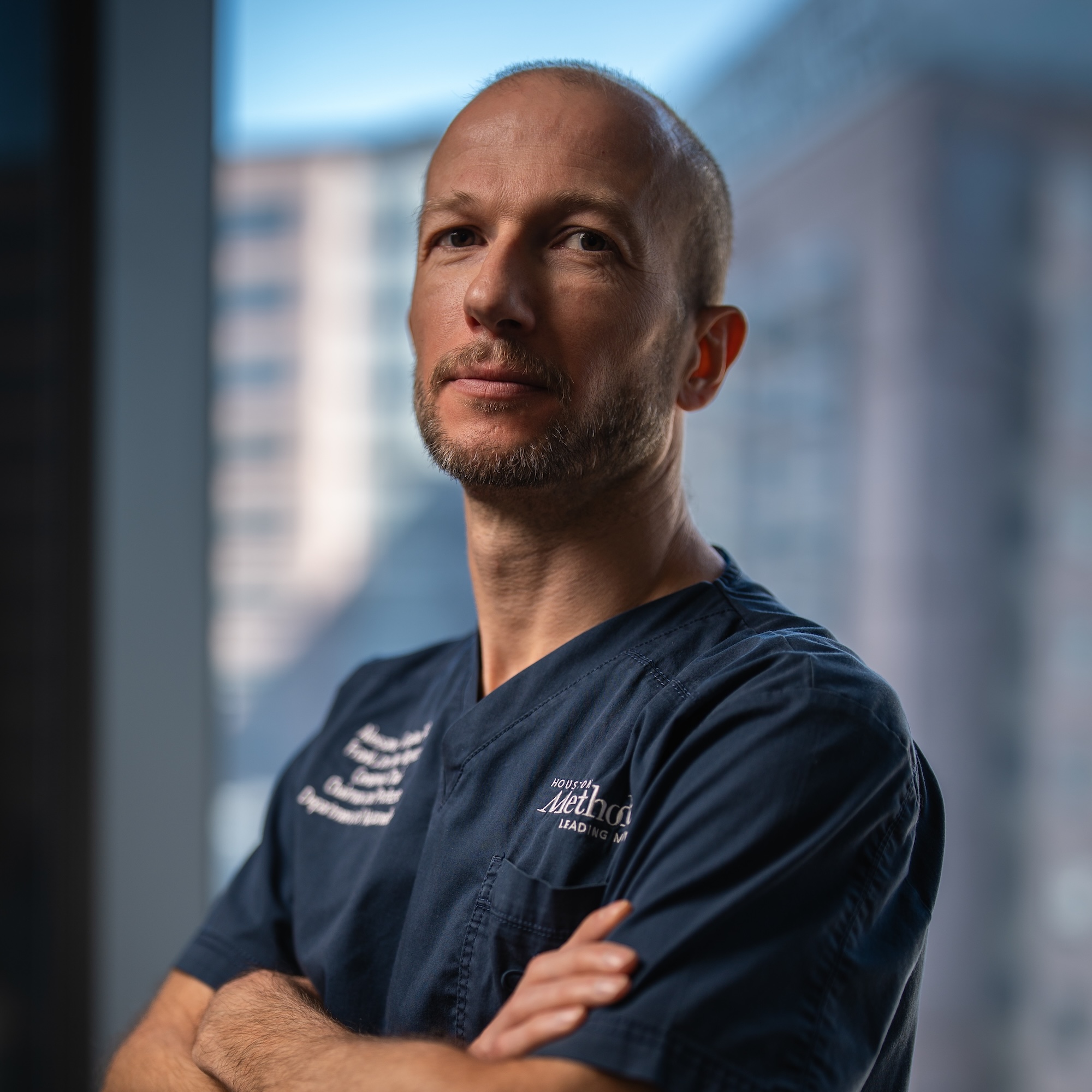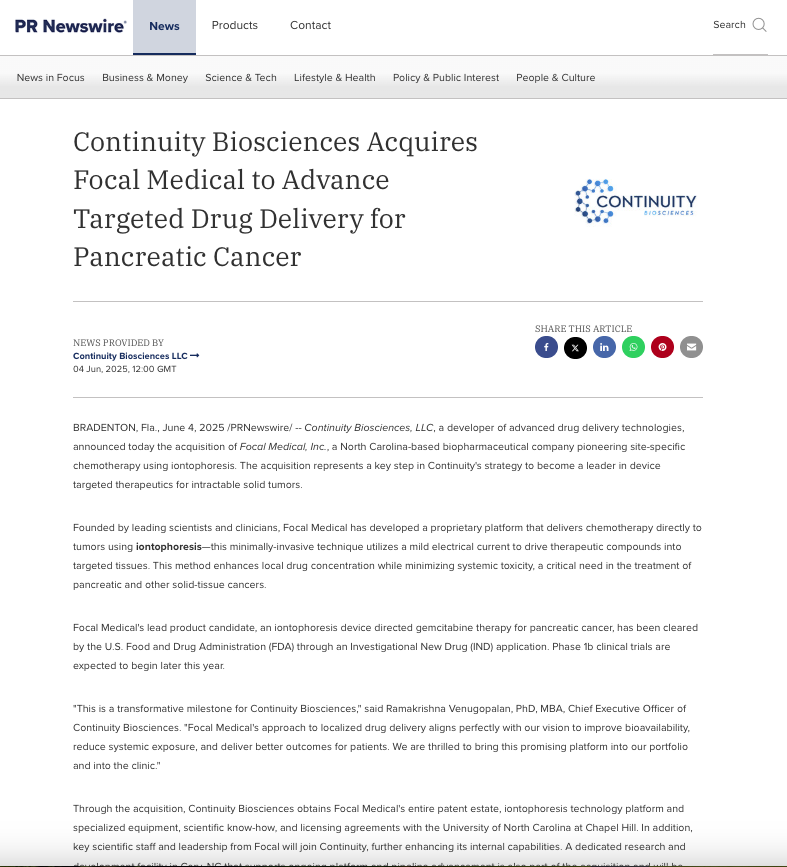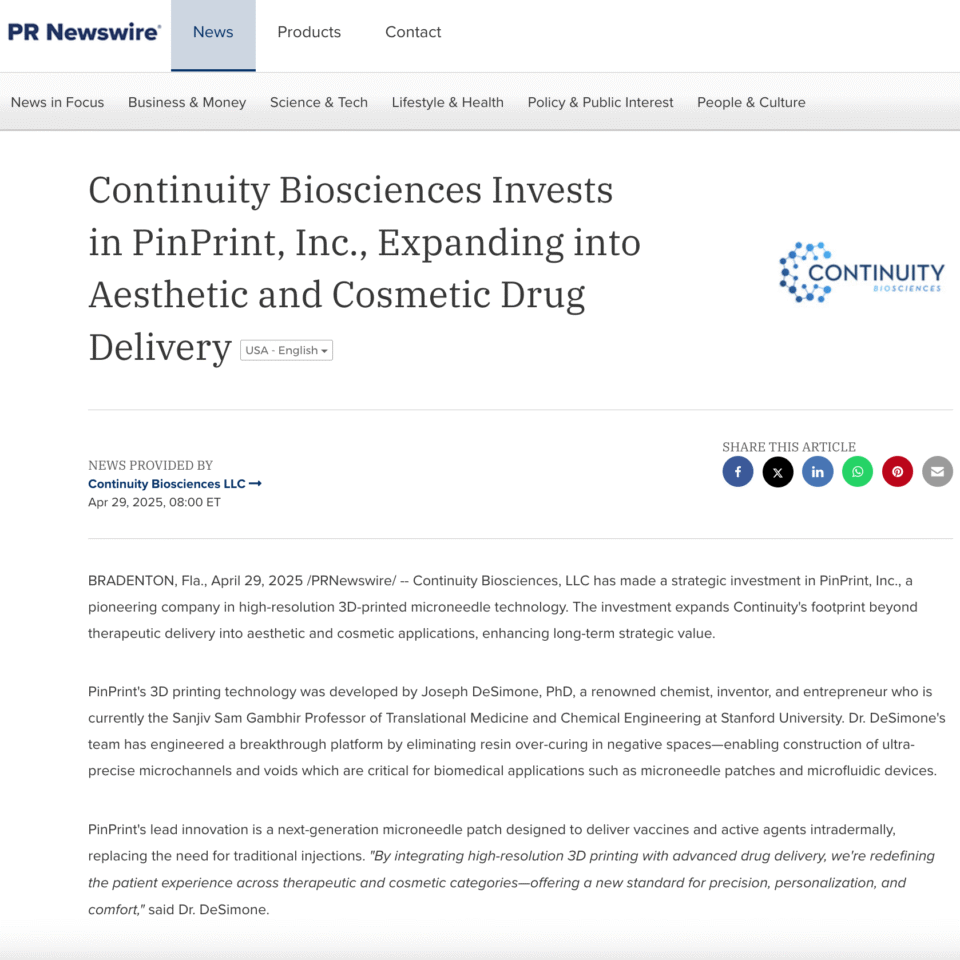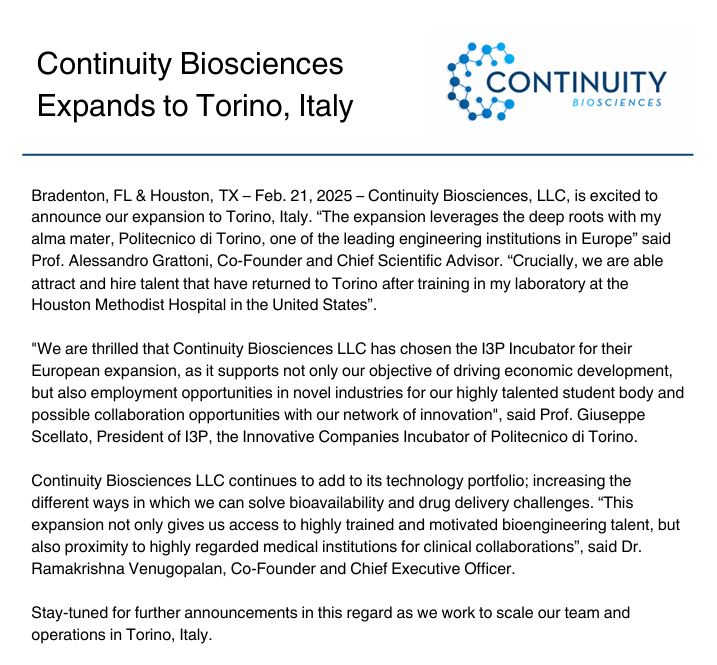About Continuity
Convergence of biopharmaceuticals, drug delivery approaches, and medical technologies is realizing therapies that are not possible through any of these fields individually – products that benefit from this convergence are called combination products.
Robert Whitehead, Alessandro Grattoni and Ramakrishna Venugopalan founded Continuity Biosciences in 2024 with the aspiration of becoming a best-in-class partner that will acquire, de-risk and operationalize targeted technology platforms that will enable the ideal product presentation for novel therapies.

$333 billion
The expected market for combination bioscience products by 2033.

9.1%
Ten year projected CAGR for combination products through 2033.

106
Relevant publications on combination products by the Continuity scientific team.

17
Patents and patent disclosures filed by Continuity scientists since 2021.
Technology
The Continuity Biosciences technology portfolio ranges from nanofluidic systems for drug delivery to cell storage systems that enable donor/stem cell transplantation and immune modulation. These technologies developed in the Grattoni Lab at Houston Methodist Hospital exploit nanoscale physics to realize unique properties such as extended zero order release kinetics. Continuity Biosciences is already in the process of licensing additional technology platforms as our strategy is to remain technology-agnostic and patient-centric; by offering multiple solutions to achieve a desired product presentation strategy.

Cell Encapsulation
The Neovascularized Implantable Cell Homing and Encapsulation (NICHE) platform is a 3D-printed implant that enables a vascularized microenvironment which can support long-term cell engraftment along with local immune modulation. Leading clinical application is pancreatic beta cell therapy for T1D.

Cell Reprogramming
The NanoLymph is a 3D-printed platform that features two reservoirs; one chamber to facilitate cell recruitment and reprogramming in vivo and the other chamber to release immunomodulatory agents to initially recruit cells and then protect the cells during reprogramming. Leading clinical applications can be cancer vaccination and immune modulation therapies.

Intratumoral
The nanofluidic drug-eluting seed (NDES) is a small implant featuring a silicon nanofluidic membrane that can achieve sustained local drug delivery when implanted within solid tumors. Leading clinical applications are local chemotherapy and immunotherapy; with added benefit of minimizing systemic side effects.

Extended Delivery
The nanochannel drug delivery system (nDS) based on tunable silicon membrane technology is a refillable, long-term subcutaneous implant that provides continuous, sustained release of therapeutics for chronic disease treatment or prevention. Leading clinical application is pre-exposure prophylaxis (PrEP) and HIV treatment to enhance medication adherence for epidemic control.
Meet the Team








Press + Publications
We'd love to hear from you
We'd love to hear from you
Continuity Biosciences LLC
Corporate Headquarters: 8476 Lindrick Lane, Bradenton, Florida 34202
Development Center: 111 James Jackson Avenue, STE 131, Cary, NC 27513









